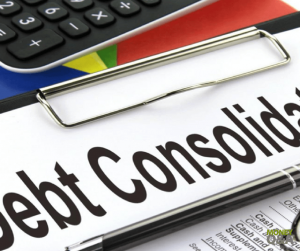
In order to make this process less tedious, people consolidate their debts into one. In some cases, debt consolidation would also come with lower interest rate. Another alternative is to apply for a loan with more favorable terms to pay off some more expensive debts.
5 Things to Do When Consolidating Debt
Personal finance experts have varying views about using debt consolidation a tool for improving one’s finances. However, regardless of what you might have heard or read about debt consolidation, here are some things you should do if you ever decide when consolidating debt.
Write Out Personal Finance Game Plan
It might sound harsh, but the reality is that most people find themselves in debt because they don’t budget. Put simply, budgeting is the process of planning your future expenses based on your expected income. A Gallup survey once revealed that two out of every three Americans do not budget. Don’t look too far, this data show why many people are in debt.
Since making your finances look better is the reason you’re planning to consolidate debt, it’s important to start with a budget. It helps to have your financial plan written out. There are tons of apps available these days that can make the process easier.
Average American has credit card debt of over $5800, with households averaging over $15,700. Click To Tweet
Discipline Yourself to Live On Less than You Make
Let’s face it, creating a budget isn’t going to do the magic of never making you cash strapped again. You have to discipline yourself to stick to it. The reality of things is that creating a budget won’t make you stop craving to spend on the things that got you into debt. You just have to learn to say no most of the time.
Take this advice from the Sage of Omaha, “The difference between successful people and really successful people is that really successful people say no to almost everything.” Learning to say no is going to help you have more money to save.
Start an Emergency Fund
Apart from having bad money habits, some folks find themselves in debt because they don’t have funds dedicated for emergency. So to start working your way out of debt, you need to build an emergency fund. It doesn’t have to tens of thousands of dollars in size.
In fact, it is recommended here at Money Q&A that you should start with a $1,000 emergency fund. If you look at things honestly, you’d find that most of the truly emergency situations you find yourselves in are be settled with less than $1,000.
Work an Extra Job
Don’t be deceived reducing your debt isn’t a one-day job, nor is the process glamorous. For many people, low income is a big reason they find themselves in debt. And sometimes, it becomes almost impossible to live within your means, except you plan to live as though in poverty.
In this case, getting an extra job could help. Some people have had success freelancing on the side. As long as you’re willing to learn, there’s almost no barrier to entry to most freelance markets. You could make extra income as a freelance writer, graphic designer, programmer, etc.
However, the thing about working an extra job is that you have less time to yourself. You and your partner need to discuss this properly, as you might need to shed certain responsibilities at home for the time being.
Start Investing
One reason why investing makes sense is that it could help protect you against inflation, provided you make the right investments. The reality is that your income will never keep up with inflation. Your portfolio has a better chance of keeping up with inflation.
You may want to consider ETFs, mutual funds as well as blue chip dividend stocks. These could also serve as sources of an emergency fund should you ever need more than you have in your dedicated emergency fund.
Consolidating debt may not be for everyone. But, there are some money moves you can make if you ever decide to consolidate debt to save money.
What about you? What other money moves should you make while consolidating debt?
Source: nyphotographic.com
